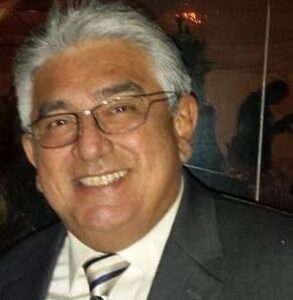How Lessors Can Qualify For Full Depreciation Of Their Leased Improvements
FAS CPA & Consultants
Lessors can elect Sec.179 for a leased property if the lessor complies with the requirements and qualifies for an active trade or business.
The Tax Cut and Jobs Act expanded the definition of Section 179. It removed the exclusion for Sec. 50(b)(2) property. Sec.50(b)(2) property is defined as property used predominantly to furnish lodging or in connection with housing.
In terms of the TCJA report,” property used mainly to furnish lodging or in connection with the furnishing of residence generally includes things like beds and other furniture refrigerators and ranges. It includes other equipment used inside living quarters of facilities like apartment houses, dormitories, and any other facility or part of a facility where sleeping accommodations are provided and let. Of course, the tangible property must be subject to a lease before lessors can claim the Sec.179 deduction.
For noncorporate lessors, Sec. 179 is fraught with obstacles. A noncorporate lessor can only claim Sec. 179 deductions if the lessor produced (manufactured) the leased property. Alternatively, the lease term must be for less than 50-percent of the class life of the property IF the lessor had Sec. 162 deductions for the property above 15-percent of the rental income produced.
Therefore, the owner of an apartment can qualify for the same if they hired a manager (labor cost) and had sufficient expenses in terms of Sec.162 that exceed 15-percent of the gross rental income (maintenance, utilities, pool costs). Under these circumstances, the election to expense certain depreciable business assets will be allowed for the property in the year the qualifying expenses exceeded 15-percent of the gross rental income.
Click Here To Chat Directly With Our CPA. Make Your Consultation
Active trade or business
Suppose a taxpayer’s rental real estate activities qualify as an active trade or business. In that case, it might generate an income or loss that might limit the taxpayer’s expensing election during his trade or business’s active conduct. The tax code does not tell us what amount of involvement is needed to rise to an “active” trade or business level. The taxpayer’s level of activity is determined by considering all the circumstances. The regulation aims to prevent passive investors from deducting Sec.179 expenses from a trade or business.
A taxpayer is active in a trade or business if they actively participate, in a meaningful way, in conducting the business management and operations. A passive investor does not qualify. Employees are assumed to be engaged in the conduct of the trade or business. When spouses file a joint income tax return, the taxable income from the active trades or businesses limitation is applied to the aggregate income of both.
After the Tax Reform Act of 1986, commentators wanted the regulation to be more specific than the terms active and passive mean something different from the passive activity rules. Treasury agreed that the active conduct standard for expensing was a different standard than the material participation standard under Sec.469. Still, they saw no need to modify the regulations to state that expressly.
Material and significant participation is not required for the active trade or business requirement. Active conduct is a low standard. Involvement in decision making is all that’s needed. The hours of participation by the taxpayer are not relevant.
EXAMPLE
⇒ X has an income of $60,000. X materially participates in a Schedule C, Profit or Loss from a business, sole proprietorship loss of $100,000. The Sec.179 deductions from the sole proprietorship are $90,000. Income from X’s apartment complex is $200,000.
⇒ It seems that X does not have an active trade or business income [$60,000 MINUS $100,000 EQUALS -$40,000.
⇒ HOWEVER: An apartment complex is a trade or business activity requiring X or his agent’s involvement. Even overseeing his apartment complex manager, X’s active participation is adequate to classify the apartment income as active trade or business income.
⇒ On his Form 1040, US Individual Income Tax Return, X will have a $160,000 active trade or business income instead of a $40,000 loss from an active trade or business. Hence, the Sec.179 deductions on Schedule C is allowed.
Check Our Service: Tax Planning For U.S. Real Estate Investors
Partnership and S corporation reporting
Schedule K-1 (Form 1065), Partner’s Share of Income, Deductions, Credits, Etc., box 2, reporting of rental activity does not prohibit the taxpayer from qualifying to claim the Sec.179 deduction for the leased property.
Form 8825, Rental Real Estate Income and Expenses of a Partnership or an S corporation, is for real estate rentals that do not enter the self-employment income calculation. All rental real estate activities are reported on the same, albeit from a trade or business or in income production. So, although Form 8825 reporting is passive, it is appropriate for non-passive real estate rentals too.
A taxpayer’s status as a real estate professional is determined at the individual level. The status of a rental of property as real estate rental is determined at the partnership level. The rental real estate goes on Form 8825, and for an individual, on Schedule E, Supplemental Income or Loss. This is the case despite the passive activity status. Sec.179 deductions are not reported on Form 8825. They are separately stated for a partnership or S corporation.
Trade or business conducted through a partnership is reported on Form 1065, US Return of Partnership Income. A partnership is not created by the mere co-ownership of a property that is leased and maintained. A partnership does come into being as soon as the co-owners provide services to the tenants. Mere holders of undivided interests in real estate do not qualify as a partnership for tax purposes.
The reporting of business rental real estate on Forms 8825, to transfer to line two of Schedule K, ‘Partner’s Distributive Share items, of Form 1065is supported by line 9 of Form 8825, under instructions. It discusses the application of the new business interest expense limitations under Sec. 163(j). It applies only to trade or business activities. A trade or business for Sec. 163(j) is defined under Sec. 162. It uses the same standard as for Sec. 199A. Therefore, it is clear that the IRS expects Form 8825 reporting of rental activities that qualify as a trade or business.
Individual taxpayers must still pass the noncorporate lessor rules. It is possible when the lessor has enough expenses apart from interest and depreciation. Despite the same, the income or loss affects trade or business income for Sec.179 purposes.
Readers should note that this article is only intended to convey general information on these issues and that FAS CPA & Consultants (FAS) in no way intended for the contents of this article to be construed as accounting, business, financial, investment, legal, tax, or other professional advice or services. This article cannot serve as a substitute for such professional services or advice. Any decision or action that may affect the reader’s business should not rely solely on the contents of this article, but should rather be consulted on with a qualified professional adviser. FAS shall not be responsible for any loss sustained by any person who relies on this presentation. This article is subject to change at any time and for any reason.
Check The Video Version Tax Planning for U.S. Real Estate Investors
We Are Just A Message Away From You. Get A Consultation
Accounting Firm providing Accounting Advisory, Tax Planning and Offshore Strategies to grow your business and protect your assets.
Clients Feedback
Our Clients Reviews

President
Thanks to FAS & CPA Consultants and Fulton Abraham Sanchez, CPA, I was able to resolve a debt of $479,677.71 that I had with the IRS.

Entrepreneur
My experience with FAS CPA & Consultants has been incredible, their professionalism is impeccable. I highly recommend them.

Manager
I highly recommend FAS CPA & Consultants, they are responsible, efficient and very dedicated.

Manager
Our Blog
Latest Articles
How to Get a U.S. Banking License
How To Get A U.S. Banking License Email Us Today Support@fascpaconsultants.com and Get An Offshore Strategy Review I Want...




Fulton is a wonderful CPA who fully understands tax law and provides honest advice for his clients.